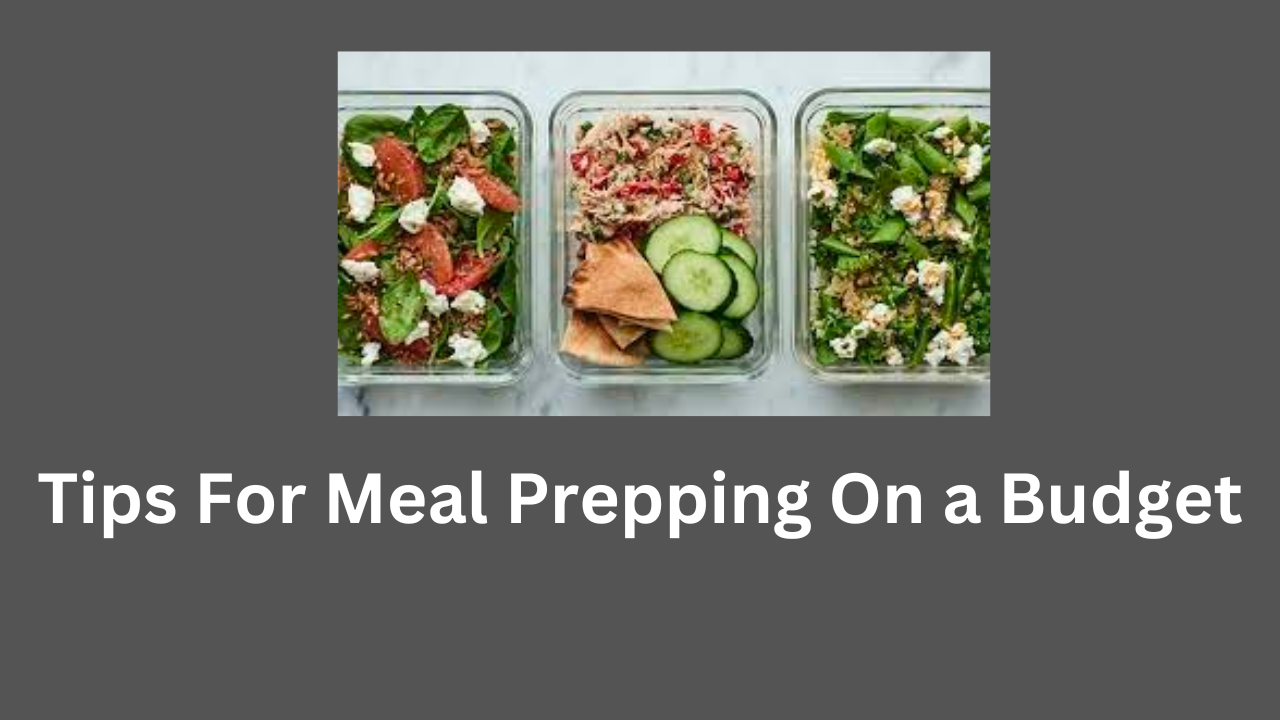Meal prepping is a fantastic way to save time, stay organized, and eat healthily. However, some people believe that meal prepping can be expensive. The truth is, with a little planning and creativity, you can enjoy the benefits of meal prepping without breaking the bank.
In this blog post, we will explore practical tips and strategies to help you meal prep on a budget, allowing you to save money while still enjoying delicious and nutritious meals throughout the week.
Is Meal Prepping a Good Way to Save Money?
Yes, meal prepping is an excellent way to save money. Here’s why:
- Reduced food waste: When you meal prep, you plan and portion your meals in advance, which helps you avoid buying excess ingredients that may go to waste. By only purchasing what you need for your planned meals, you can minimize food waste and maximize the value of your groceries.
- Bulk cooking: Meal prepping often involves cooking larger portions of meals and storing leftovers for future consumption. Bulk cooking allows you to take advantage of cost savings when purchasing ingredients in larger quantities. Additionally, by repurposing leftovers into new dishes, you maximize the value of your ingredients and reduce the need for additional grocery shopping.
- Smart shopping: Meal prepping encourages you to plan your meals and create a shopping list based on those plans. This helps you stay focused and avoid impulse purchases at the grocery store. By sticking to your list and buying only what you need, you can eliminate unnecessary spending on items that might go unused.
- Avoiding eating out: One of the significant advantages of meal prepping is that it reduces the temptation to eat out or order takeout. Eating out regularly can be costly, and the expenses can add up quickly. By having prepared meals ready to go, you’re less likely to rely on restaurants for your meals, resulting in significant savings over time.
- Utilizing affordable ingredients: Meal prepping allows you to choose cost-effective ingredients such as grains, legumes, seasonal produce, and affordable protein sources. These ingredients tend to be less expensive than processed or convenience foods, helping you stretch your budget while still enjoying nutritious and satisfying meals.
- Time savings: While not directly related to saving money, meal prepping can also save you time. By dedicating a specific time to prepare your meals for the week, you eliminate the need for daily cooking and reduce the likelihood of relying on expensive convenience foods or takeout due to time constraints.
Tips For Meal Prepping On a Budget
- Plan Your Meals
The first step in successful meal prepping on a budget is to plan your meals in advance. Start by creating a weekly or bi-weekly meal plan that incorporates ingredients you already have in your pantry and freezer. Take into account any sales or discounts at your local grocery store and plan your meals accordingly. By having a detailed plan, you can avoid impulse purchases and focus on buying only what you need, saving you money in the long run.
- Shop Smart
Once you have your meal plan, it’s time to hit the grocery store. When shopping on a budget, it’s essential to be a smart shopper. Stick to your list, avoid buying pre-cut or pre-packaged items, and opt for whole ingredients that can be used in multiple meals. Consider buying in bulk for non-perishable items such as rice, pasta, and canned goods. Additionally, take advantage of sales, discounts, and coupons to further reduce your grocery expenses. Another great tip is to visit local farmers’ markets or discount stores, where you can often find fresh produce at lower prices.
- Embrace Seasonal Produce
Seasonal produce is not only fresher and tastier but also more affordable. When meal prepping on a budget, focus on incorporating fruits and vegetables that are in season. Not only will you save money, but you’ll also enjoy the natural flavors of these ingredients. Take some time to research the seasonal produce in your area and adjust your meal plan accordingly. You can even consider buying in bulk when produce is at its peak and freezing or preserving it for later use.
- Cook in Bulk
One of the significant advantages of meal prepping is that it allows you to cook in bulk, saving both time and money. When preparing your meals, double or triple the recipe to make larger portions. This way, you can enjoy leftovers throughout the week or freeze them for future meals. Bulk cooking is not only cost-effective but also helps prevent food waste. Invest in airtight containers or freezer-friendly bags to store your prepped meals properly. Label them with the date to ensure you use them within a reasonable time frame.
- Repurpose Leftovers
Get creative with your leftovers! Instead of letting them go to waste, find ways to repurpose them into new dishes. For example, leftover roasted chicken can be turned into a chicken salad, stir-fry, or added to a hearty soup. Leftover vegetables can be used in omelets, frittatas, or as toppings for homemade pizzas. The possibilities are endless. By repurposing leftovers, you maximize your ingredients’ value and reduce the need for additional grocery shopping.
Conclusion
Meal prepping on a budget doesn’t mean compromising on taste or nutrition. With a little planning, smart shopping, and creativity, you can enjoy affordable and delicious meals throughout the week. Remember to plan your meals, shop smart, embrace seasonal produce, cook in bulk, and repurpose leftovers. By following these tips, you’ll not only save money but also reduce food waste and make the most of your ingredients. Happy and budget-friendly meal prepping.

